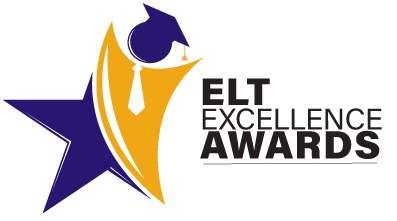Welcome Judges
"Travel with us around Europe": Designing a padlet to embark on a journey to European countries
Nomination Description
The students of the 21st century are digital natives (Prensky, 2010) and familiar with software, the reading of online books and dictionaries, search engines, digital games, digital communities and web tools. Consequently, they lose interest in school textbooks which are outdated, do not promote differentiated learning, project stereotypical “nice” characters, far remote from contemporary students’ identities, and rely on obsolete forms of assessment.
The students involved in this project worked in four groups, that is “The Thunderbolts”, “The Fabulous 5”, “The Environmentalists” and “Wild Nature”.
Aiming at the construction of a flipped classroom model, the English teacher provided various digital resources, principally from artificial intelligence data bases, so that the students could create their avatars, their logos to promote their travel agencies, their recordings in speech generators, their image generators, etc. Prior to the design of the padlet, the teacher provided the students with a Google online questionnaire in order to investigate their attitudes towards the use of technology, their willingness to work in groups and the benefits of Geography while discovering cultural practices in other countries.
A thorough exploration of areas of interest, such as local sites, tourist attractions, local cuisine, remarkable personalities and Christmas traditions were some of the sections included in the padlet, which is available on the following link https://padlet.com/marakiwriter/travel-with-us-around-europe-2x0k3utiqgze1x78?contribution_type=draftPost&has_user_contributed=true
Due to the fact that not all the students are quite competent concerning their digital skills, nor do they all have the means to create digital texts, they were provided with the alternative to write their texts. A student-collaborator would then type the text and another one would try to create a power point presentation or use a presentation included in the Artificial Intelligence database, for instance, pictory.ai to present facts about a certain country.
While creating their logos, the students were trying to be persuasive travel agents using both the linguistic and visual code, by combining a variety of colours, fonts and images that would make their destination very attractive. For this purpose, BrandCrowd logo generator was used which provides a vast variety of logos. They also used online maps which connect the countries they undertook to work on. On these maps, a potential traveller can see the route which can be achieved by various means of transport, such as train, aeroplane, or car depending on their budget. Another application used is called ElevenLabs and was used to generate speech from their texts. In their texts, the students encourage the future travellers to choose their travel agency because it is the best and offers a variety of options concerning the experience in the foreign country.
For the creation of their avatars, the students used an Artificial Intelligence application called fotor.ai and also justified their choice of identity.
In December, all the students provided material related to the winter traditions and Christmas festivities in the countries they were working on. Some of them resorted to power point presentations and some of them preferred to use pictory.ai to prepare their presentations.
While designing the padlet, the teacher also provided constant feedback on the work of the students since there is a section where both students and teachers can write comments.
The project is still in progress and will be concluded at the end of February through a final online questionnaire to assess the students’ improvement of linguistic, visual and digital skills.
Διοργάνωση

Should you need further assistance please contact
Athinia Koutouvali, athina.k@eltnews.gr, T: +30 (0) 210 6712 991.
© 2025 ELT Excellence Awards. All Rights Reserved – Terms & Conditions










